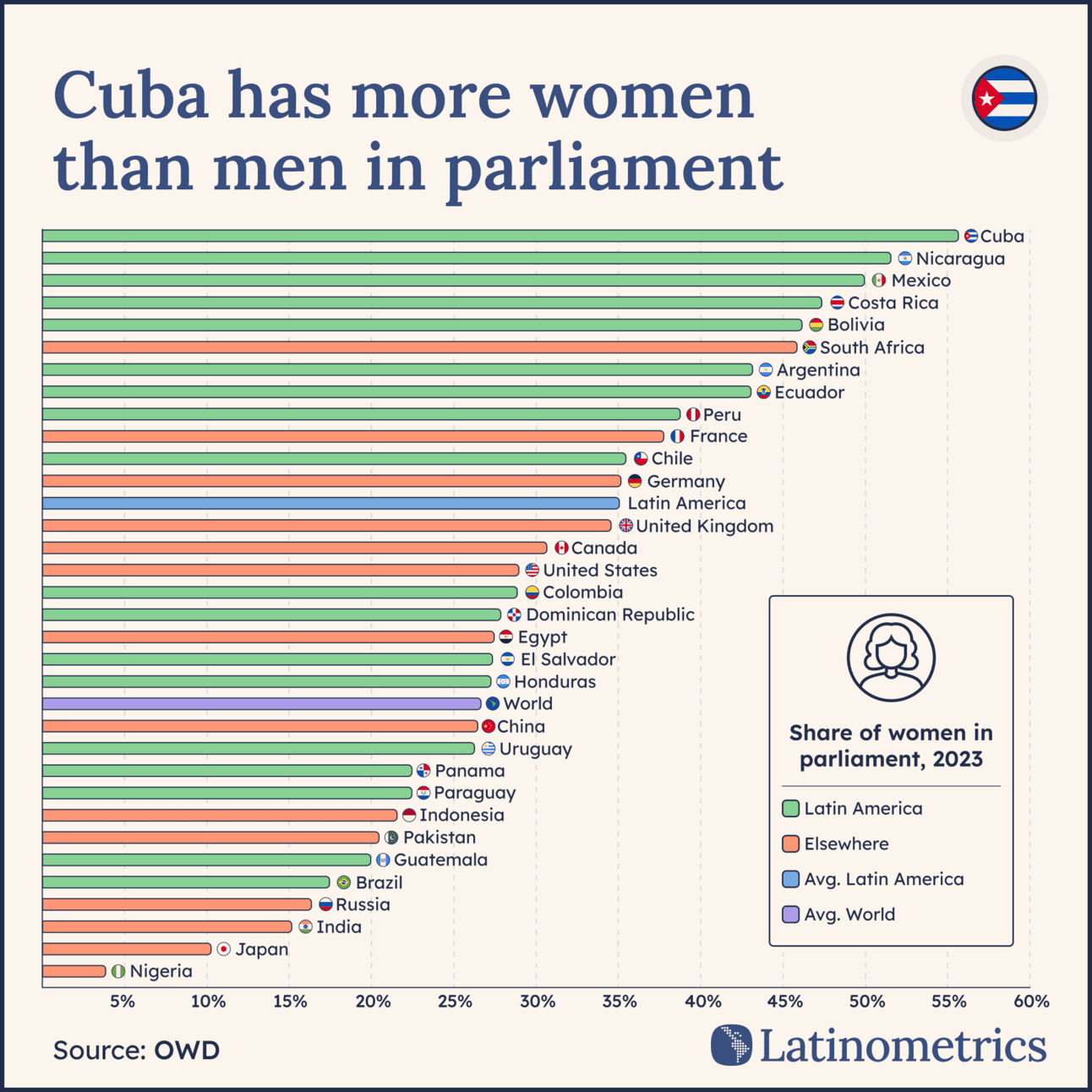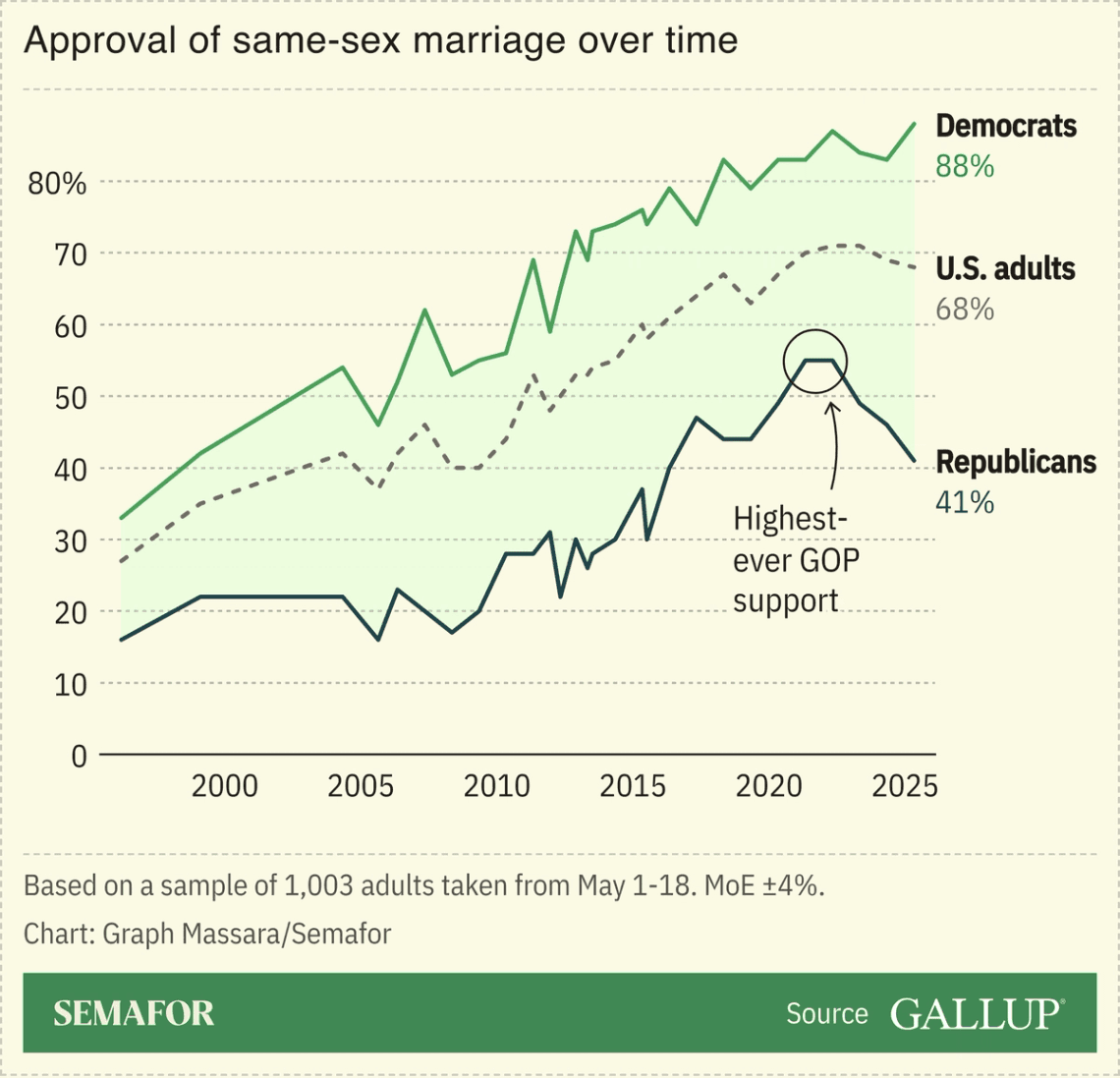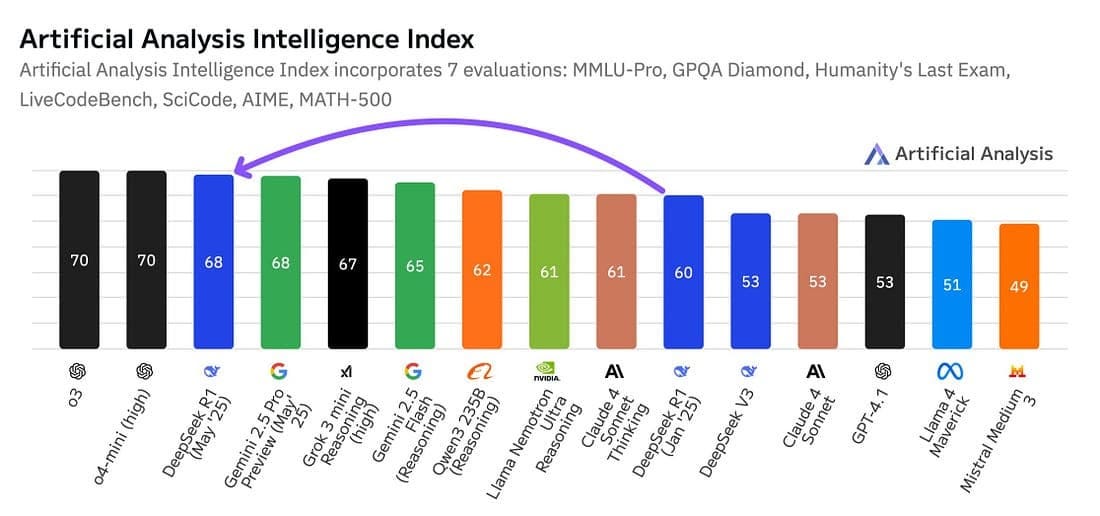Cuban women parliament, Saudi oil worries, Mexico democracy rebound
In today’s issue, we cover Cuba’s female-majority parliament, Saudi oil price woes, Mexico democracy rebound, Republican same-sex marriage shift, DeepSeek’s AI momentum, OpenAI’s lead, and Mission Imp
1. Cuban has more women than men in (one part of) its governing system
Source: Latinometrics
Cuba has 55.7% of seats in national parliament held by women (Dec 2024), 2nd highest globally after Rwanda (63%) according to World Bank Gender Data. This is sustained by mandatory gender quotas and an emphasis on gender equality since the 1959 Revolution. Quotas ensure over half of nominees are women; social policies (universal education, healthcare) also help foster a female leadership pipeline. Regional context: Cuba far exceeds Latin American peers in legislative gender parity but lags on women’s influence in strategic policymaking roles. There is still lots of progress to make: the assembly itself has limited power with most high-level authority concentrated in male-dominated executive structures—women are fewer than 30% on Council of State and in Communist Party leadership.
2. Mexico’s democracy score looks to be rebounding with Claudia Sheinbaum
Source: Semafor
Mexico’s democracy score is rebounding, reversing its decline under Lopez Obrador’s presidency (2018-2023), during which scores dropped nearly six points to 63.3 amidst authoritarian tendencies and attacks on press freedom. Sheinbaum’s administration signals improved respect for political rights and public freedoms, halting the downward trend. Recent reforms enabling gender parity mark additional institutional progress. Mexico still faces structural challenges — notably rule of law deficits, judicial independence weakness, and persistent inequality affecting Indigenous and marginalized communities.
3. Republican approval of same-sex marriage is dropping after peaking in 2020/21
Source: Semafor
Republican opinion is highly reactive to national party cues and the conservative media environment, which have shifted right on gender/sexuality topics post-2021. Anti-LGBTQ rhetoric has risen, alongside high-profile policy proposals linked to Project 2025, and backlash against expanded LGBTQ visibility/rights. Further, older Republicans remain less supportive, and the GOP’s base is aging. The majority of Americans (67%) and younger cohorts retain strong support for same-sex relations.
4. China's DeepSeek gains ground in the AI race, but OpenAI still out in front
Source: Artificial Analysis
DeepSeek surged after Jan 2025 R1 model launch—16M US downloads in 18 days vs ChatGPT’s 9M; viral adoption driven by technical breakthroughs. Core: DeepSeek achieved near-parity with OpenAI despite US chip export controls, proving China’s capacity for high-efficiency, cost-effective AI innovation using limited hardware. Since then, DeepSeek’s continued ascent reflects China’s strategic emphasis on AI self-sufficiency. OpenAI still leads in scale and brand, but DeepSeek’s model gain signals accelerating multipolar AI competition.
5. Mission Impossible has been a box office hit machine for Tom Cruise
Source: Chartr
Mission Impossible shows a consistent trend: strong openings, mid-run dip, then weekend surges, including outside core Western audience (e.g. India). Context: franchise reliability, Tom Cruise’s star and action setpieces drive repeat viewing; global marketing, premium screens, and limited high-profile competition on release weekends amplify box office. "Final Reckoning" projected $650M–$720M total despite $400M budget, reaffirming MI as Cruise’s hit machine and resilient amidst changing box office dynamics.






